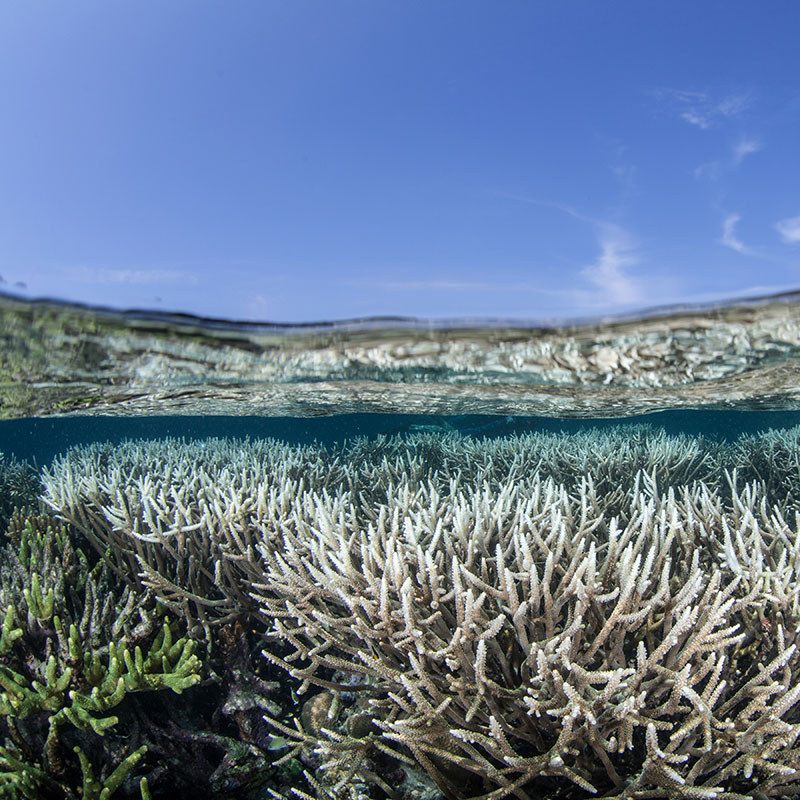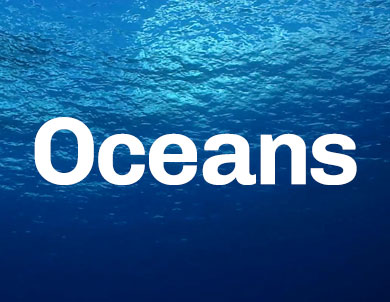Ocean acidification is mainly caused by carbon dioxide gas in the atmosphere dissolving into the ocean. This leads to a lowering of the water's pH, making the ocean more acidic.
Carbon dioxide is being produced faster than nature can remove it, so increasing amounts are being absorbed by the ocean.
Why are carbon dioxide levels increasing?
Many factors contribute to rising carbon dioxide levels.
Studying ocean acidity in the past is difficult, but scientists know that an escalation in carbon dioxide levels was triggered in the 1800s by the Industrial Revolution.
Currently, the burning of fossil fuels such as coal, oil and gas for human industry is one of the major causes.
Deforestation results in fewer trees to absorb the gas. Also, when plants are cut down and burnt or left to rot, the carbon that makes up their organic tissue is released as carbon dioxide.
What else can affect the acidity of the ocean?
Some parts of the ocean are naturally acidic, such as at hydrothermal vent sites - underwater 'hot springs'.
In the past, ocean acidification occurred naturally but over much longer periods of time. It is occurring faster now than in the last 20 million years.

Corals in a shallow reef. Ocean acidification dissolves corals' calcium carbonate structures. © Ethan Daniels/ Shutterstock
